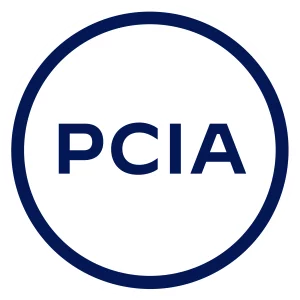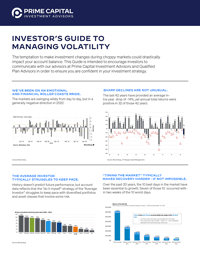In a recent episode of “20 Minutes of Clarity,” we explored the intricate world of retirement planning. Addressing some of our listeners’ most common questions, we discussed ways to maximize their retirement. From determining the best time to start Social Security benefits to strategic financial planning, we’ve gathered some essential information to help guide you through these complex decisions. Whether you’re in the early stages of planning, or fine-tuning your existing strategy, join us as we delve into some best practices to help guide you on your way to retirement.
Understanding When to Start Social Security
One of the most common questions in retirement planning revolves around Social Security. When is the ideal time to start taking benefits? Ryan Shannon, one of our advisors in the PCIA Charleston office, suggests that the decision depends significantly on other income sources, such as pensions and retirement accounts. Your choice includes starting early (age 62 is the minimum age when you can file), waiting until full retirement age which is around 67 years old depending on your month and year of birth, or waiting from your full retirement age until age 70 during which time your benefit increases by 8% per year. Timing impacts not only the immediate benefits—the longer you wait the higher your monthly amount—but also the long-term cumulative benefits over your lifetime. And keep in mind that there are tax implications—Social Security benefits can be taxed up to 85% depending on your combined income.
Tax Implications of Social Security
It’s crucial to consider the tax impact of starting Social Security, especially if you’re still working. Drawing benefits before reaching full retirement age might not be beneficial if your earnings exceed the set thresholds, as this could lead to reduced benefits—although these will be added back later. Ryan emphasizes the importance of a holistic view of your finances to decide when to start taking Social Security. Once you file, your combined income will be calculated each year, and your income will include the amounts you have to withdraw from traditional 401(k)s, IRAs and similar pre-tax retirement accounts. NOTE: You have to start annual withdrawals at age 73 and pay taxes on the withdrawn amounts. These are called RMDs or required minimum distributions and they must be taken by December 31 each year—there is no grace period to tax day.
The Right Time and Strategy to Retire
Determining when you can retire comfortably is another significant concern for many. Our advisors use several metrics, such as the sustainable withdrawal rate, to guide clients. The concept of the portfolio reliance rate is critical here—it helps understand how much of your retirement needs to be funded by your savings versus other income sources. Lower reliance on your portfolio for income could allow for more aggressive investment strategies, potentially leading to better growth and sustainability of funds.
Dealing with Debt Before Retirement
Paying off debt before retirement may significantly reduce financial stress and increase disposable income for leisure and unforeseen expenses. Ryan advises prioritizing debt repayment as a part of retirement planning, particularly in a rising interest rate environment where carrying-over debt can become increasingly expensive.
Choosing the Right Accounts for Withdrawal
A common question is which accounts to withdraw from first during retirement. The decision involves understanding your tax bracket, the tax characteristics of each account, and your overall financial goals. Distributions from Roth IRAs, for example, are tax-free, making them an attractive option for maintaining lower taxable income in retirement.
Early Retirement and Health Care Considerations
Retiring before age 65 requires careful planning, especially regarding health insurance costs, before Medicare kicks in. Managing your income to stay within favorable tax brackets can help minimize healthcare expenses and extend the longevity of your retirement savings.
Retirement planning is a complex process that requires careful consideration of many factors, including when to start Social Security, how to handle debt, and which accounts to withdraw from to optimize financial stability. Our “20 Minutes of Clarity” podcast offers further insights into these topics, and we encourage you to listen to the full discussion here.
Whether you’re nearing retirement or already enjoying your golden years, understanding these strategies can profoundly affect your financial security and comfort. For more personalized advice, consider consulting with a financial advisor who can provide tailored strategies based on your unique financial situation.
We hope this article has provided valuable insights into planning for a secure and fulfilling retirement. Stay tuned for more information to help you manage your finances effectively. Remember, planning today can lead to a brighter tomorrow, so please reach out to us to have a complimentary conversation before you retire. Ideally, planning ahead at least five to 10 years can give us more time to help you plan and set things up for retirement.
ClearPictureFinancial.com is here to help with the complexities of retirement planning while keeping your goals in focus. Give us a call today at (843) 743-2926 to reach financial advisor Jason Noble, CFP®, RICP® to take the first step toward achieving your retirement lifestyle dreams.
This information does not constitute legal or tax advice. PCIA and its associates do not provide legal or tax advice. Individuals should consult with an attorney or professional specializing in the fields of legal, tax, or accounting regarding the applicability of this information for their situations.
Advisory products and services offered by Investment Adviser Representatives through Prime Capital Investment Advisors, LLC (“PCIA”), a federally registered investment adviser. PCIA: 6201 College Blvd., Suite 150, Overland Park, KS 66211. PCIA doing business as Prime Capital Wealth Management (“PCWM”) and Qualified Plan Advisors (“QPA”). Certain services may be provided by affiliates of PCIA.
061424007 JG





